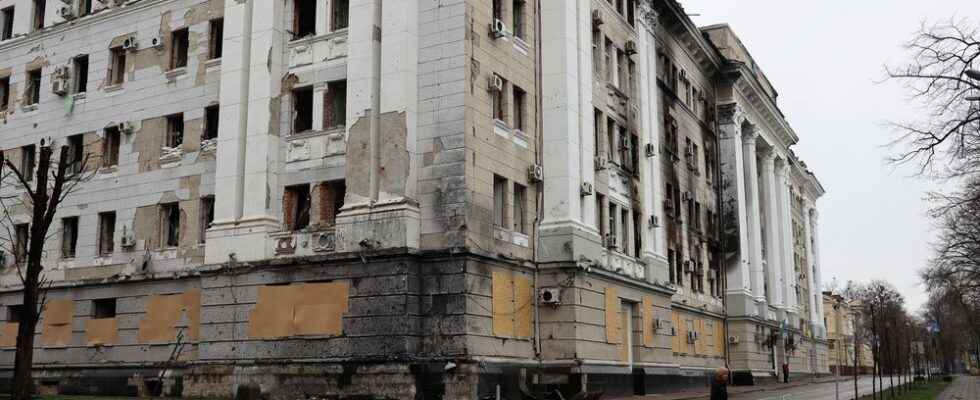His school is empty but his temple is packed on Sunday mornings. Physics teacher and headmaster, Oleksander Vyalov saw all his students leave the private establishment he created in the city of Kharkiv. He himself brought his wife and three children to safety in Poland, when the great city in eastern Ukraine began to suffer the first Russian bombardments. When asked why he gave up taking refuge abroad, despite the rain of shells, he declared that he stayed for his flock. Because Oleksander is pastor on Sundays in the Protestant temple of the district. “The faithful are afraid. So I try to reassure them, even if I too am afraid! But the captain of a boat must leave last. I tell them that with hope, the people will rise again . Ukraine has always recovered from its tragedies.”
Constant smile on his lips, poet in his spare time, Harley Davidson suspenders on his black T-shirt, the teaching pastor has stacked Bibles and detective novels in front of the windows of his household. He feels that both provide equal protection from splinters. Not far from its small residential street, a hospital and a market were partly destroyed by Russian cannonade and Grad missiles.
Buildings in Kharkiv, partly destroyed by war.
Alexandre Gerfaut for L’Express
“Putin has always considered Ukrainians second-class citizens, says the teacher before reciting a poem of his own composition and then playing the guitar to drown out the sound of sirens. And he wants to conquer all of our territory.” So, despite his ties to Russia, the pastor plans to give up the language of the neighboring country. Like many inhabitants of Kharkiv, populated by 1.5 million souls before the war, mostly Russian speakers. By an astonishing paradox, Putin’s army ended up bombing the populations it intended to “liberate”.
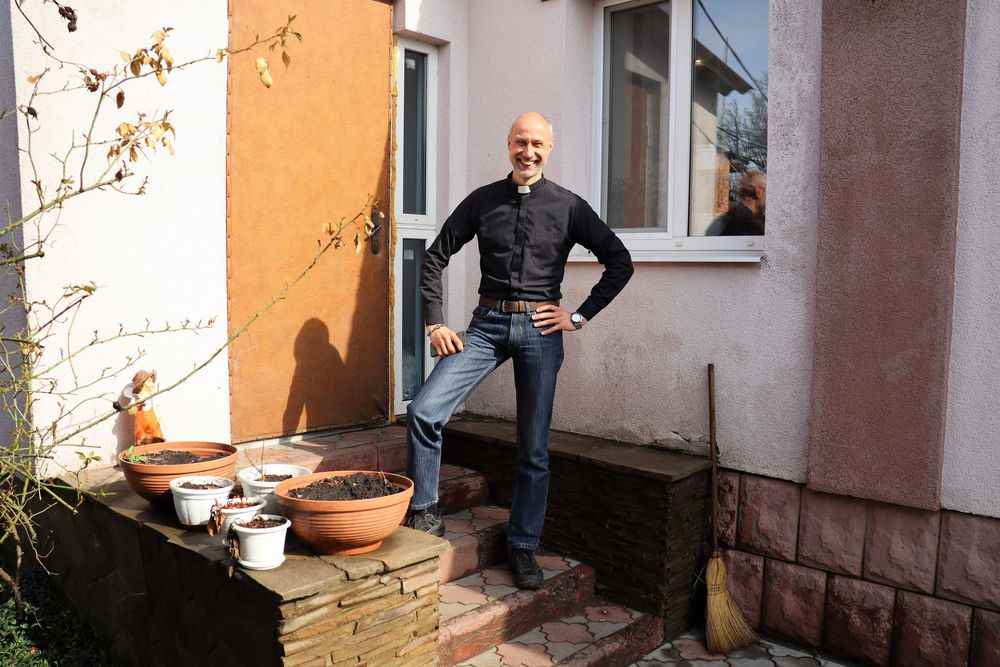
For his followers, Oleksander Vyalov decided for his part to stay in Kharkiv despite the war.
Alexandre Gerfaut for L’Express
Artillery duel
Placed on a plain formerly sung by Gogol, born further west, the second city of Ukraine is one of the strategic locks to contain the invasion of Donbass. “The city has become unified with the war, says Lieutenant Oleg Tcherkassy, commander of the 227th battalion – which defends the center – flanked by two masked bodyguards. If it is pounded so much by the Russians, it is for two reasons: to fix our troops here and also out of revenge, because the enemy knows that the city is impregnable.” At the same time, begins a real artillery duel between the two armies.
Iron harrows, concrete chicanes, barricades of sandbags and steel beams: Russian-speaking Kharkiv is a gigantic entrenched camp, threatened on three of its flanks. So the inhabitants organize themselves and join for many the Ukrainian forces. The pastor’s garden neighbor did not hesitate for a moment. Thick build, boxer fists, shaved head, Oleg Dumkan is a car dealer, son of a former Soviet army non-commissioned officer, and now a militiaman at night. At 100 kilometers per hour, he takes us to the bombarded neighborhoods in his Volkswagen with the rear window shattered by shrapnel.
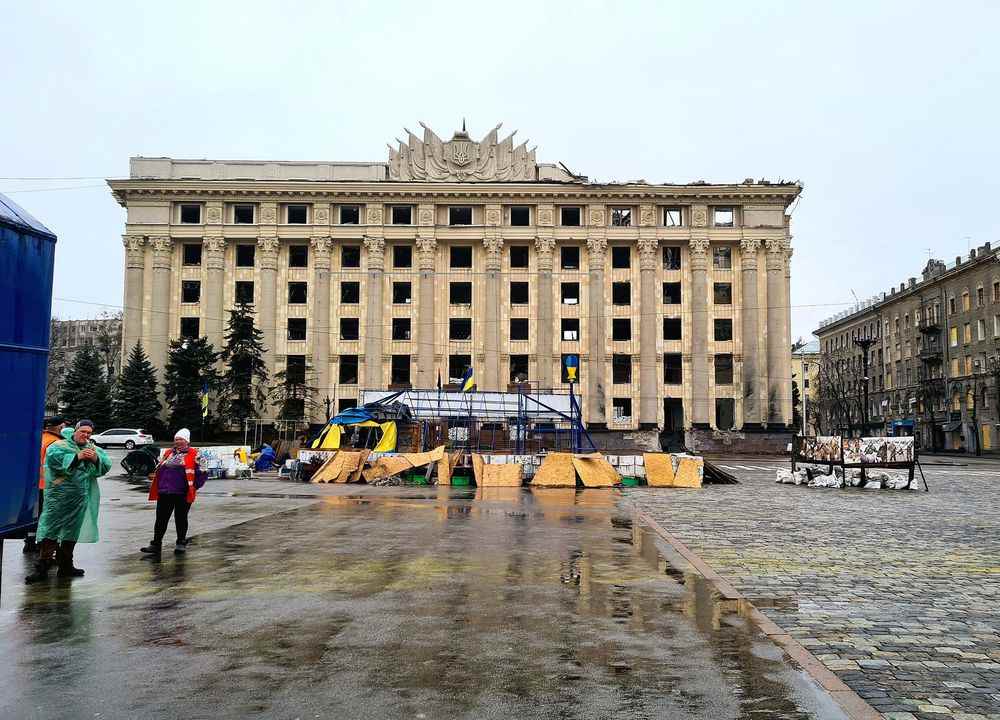
With the war, Kharkiv has become a gigantic entrenched camp.
Alexandre Gerfaut for L’Express
Near a school with a gutted facade, an old lady came out of her cellar for the first time in 48 days. She praises the volunteers and militiamen such as Oleg who brought her food during this season in hell. He also strives to track down spies, diversanty, which inform the Russian army. 200 of them have been identified since the start of the offensive on February 24. “I’m not married, I have no family, I have nothing to defend except the motherland, said Oleg, taking the wheel at high speed. Ukraine will never be brought to its knees.” To see him encourage the rest of the troop and organize the defenses of the district, one takes his word for it.
life underground
A stone’s throw away hides a small underground town, which Oleg knows by heart. In the Universitet metro station, city dwellers and villagers from the surrounding area have recomposed a small hive. Under the cobblestones, the rage to live. Tatiana, 46, who ran a women’s lingerie shop on the avenue just above before the war, has become a humanitarian aid boss 30 meters underground.
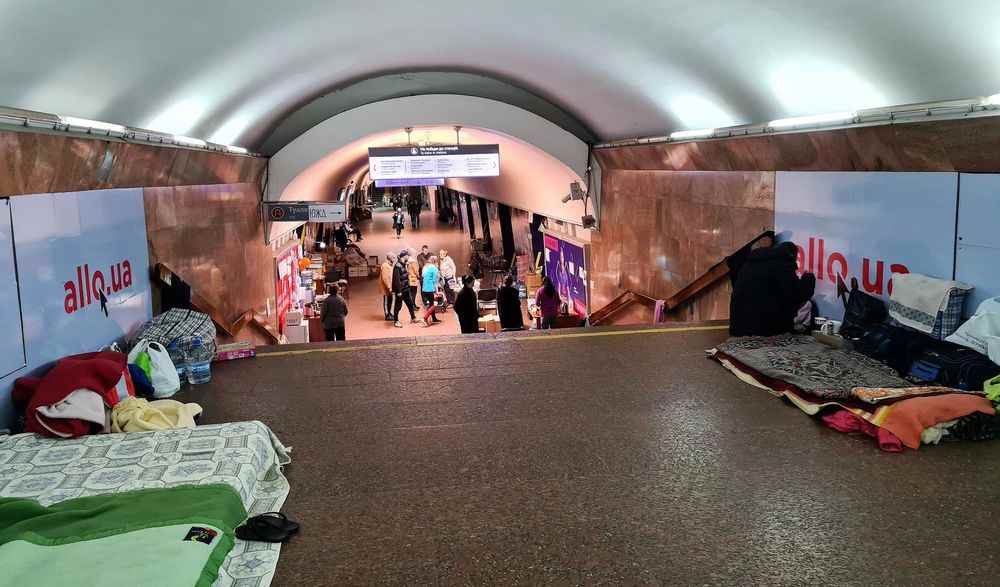
The Universitet metro station has turned into an underground city.
Alexandre Gerfaut for L’Express
The guts of the city look like a court of miracles, but not a piece of paper is lying around. Tatiana points to a long metro train, each carriage of which has become a temporary apartment. There, Denys Kulich, a young builder from Luhansk and artist during his spare time, continues to paint. Further on, lying on a cot in the hallway, Valéry, an 80-year-old retired history teacher, writes poems “for whoever wants to listen to them”, while Vlad, a videographer who has just celebrated his 25th birthday, reconstructed an editing studio in his train to inform the world. In the bowels of Kharkiv, the people below have regained their rights.
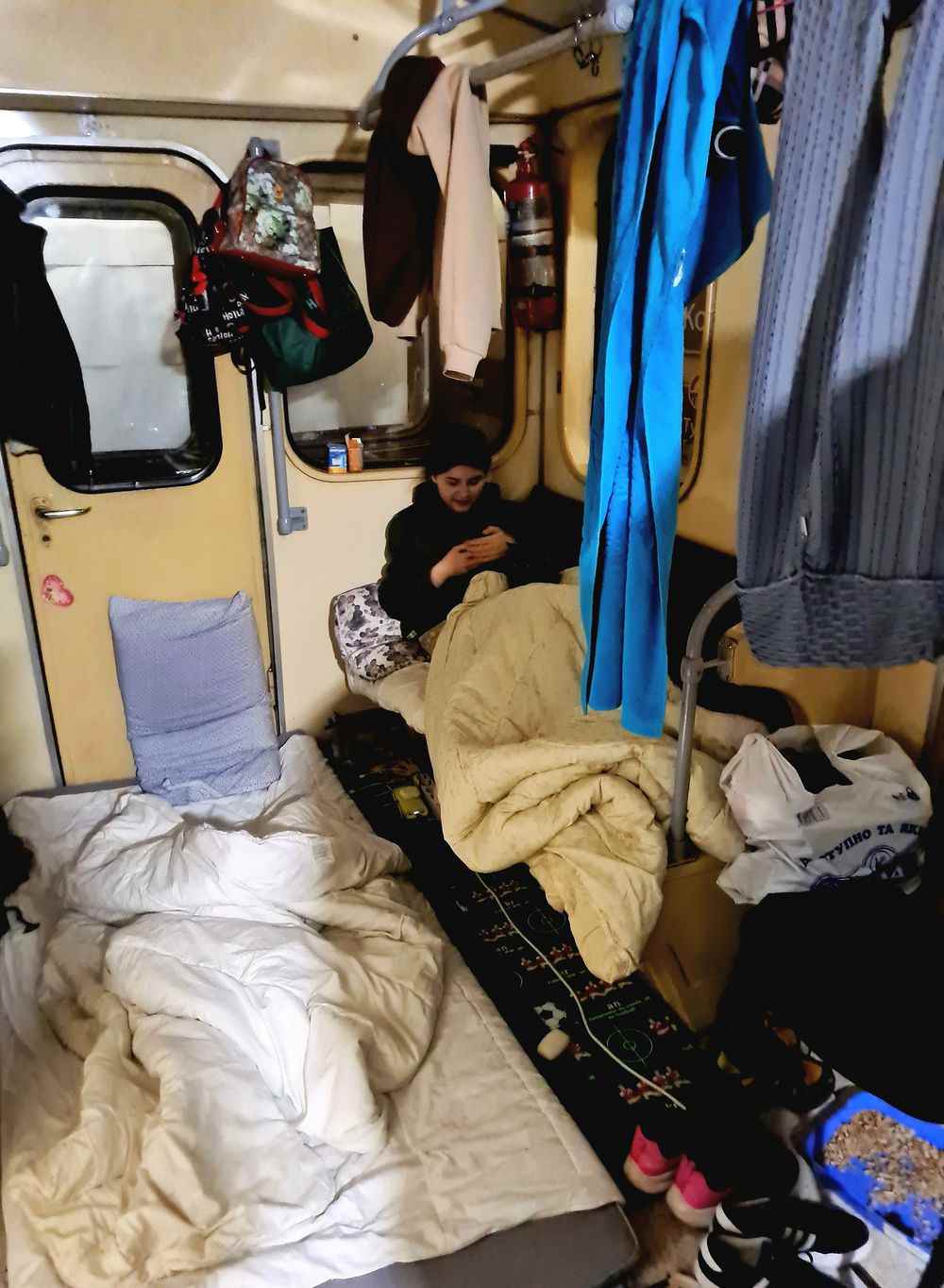
The metro trains have become temporary apartments.
Alexandre Gerfaut for L’Express
Coming out of the metro, the diocesan cathedral of the Annunciation looks like a emaciated Madonna, with its golden dome blown up by the missiles. Even the trees in the park are sheared by grapeshot. This in no way prevents cellist Denys Karachevtsev from starting the Suite number 5 in C minor by Bach in front of the ruins. “I love my heroic city which is struggling to survive”, soberly slips the musician. That day, a gigantic open-air theatre, the lock of Kharkiv resisted the storms of steel with notes of velvet.
